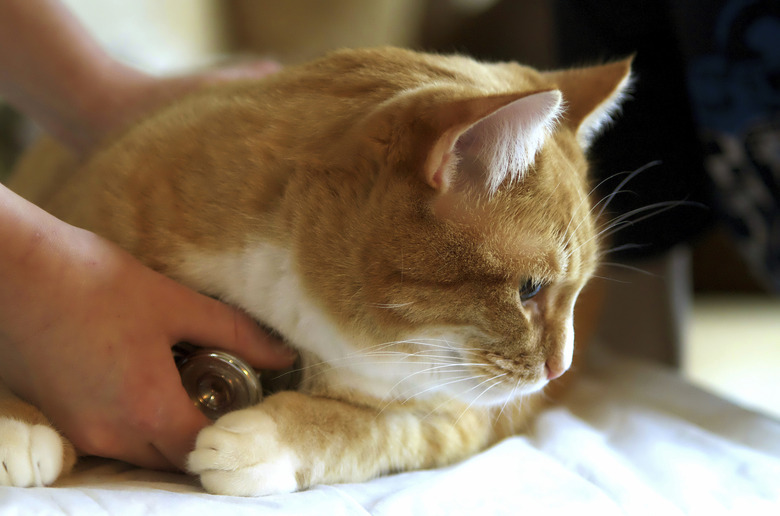Cat Head Trauma Symptoms
If you notice any cat or kitten head trauma symptoms, such as decreased coordination and erratic eye movements, be sure to take your feline to a veterinarian right away. A head injury or concussion can be caused by a fall or a car accident. Other conditions, such as toxins, fever, and long periods of abnormal blood pressure, can also cause brain injury even if there isn't a direct physical trauma.
Brain trauma and injury causes
Brain trauma and injury causes
If you have an indoor cat, you will likely know if she has an accident or injury. It could be a fall down the stairs or off the fridge or if something falls or is dropped on her. Outdoor cats are more at risk of trauma and brain injury from falls, fights, and car accidents.
Sometimes, cat trauma symptoms are obvious, such as bleeding and limping. When your cat has an obvious injury, be sure to watch for signs of concussion or brain injury. However, in other cases, the injuries are internal and not immediately visible to the eye. If you didn't witness the incident, you may never know what caused the trauma.
Brain injuries may have other causes besides trauma. Some examples include toxins, low blood sugar, abnormal blood mineral levels, low blood oxygen levels, abnormal blood pressure for long periods of time, brain tumors, heart attacks, and seizures. Some illnesses and infections can also cause injury to the brain.
Signs of head trauma in cats
Signs of head trauma in cats
There are many symptoms for which to look that can indicate head trauma or brain injury. Some signs to look for include a head tilt, erratic eye movements, abnormally dilated or constricted pupils, and pupils that don't react to light as expected. Your cat may have altered consciousness, ataxia, disorientation, and loss of consciousness.
Cats may also bleed from their nose, mouth, or ears; have visible facial swelling; drool excessively; or start vomiting. Your cat may not respond when you speak or try to interact with him.
Without treatment, some cat head trauma can cause death. Other complications may include a cat going blind after head trauma, seizures, and respiratory problems.
Veterinary treatment of brain injuries
Veterinary treatment of brain injuries
Take your cat to the vet right away if she experiences head trauma or shows any symptoms of a brain injury. Your vet will perform a physical examination and may order additional testing. An MRI or CT scan for head trauma can help your vet evaluate the severity of the injury. X-rays may be ordered if your cat had a physical trauma, and your vet suspects bone fractures.
Treatment depends on the severity and cause of the injury. In the case of physical trauma, your vet will treat any wounds and bone fractures. Your vet may also prescribe supportive care, such as anti-seizure medications, IV fluids, oxygen, sedatives, and pain medications. If your cat is having difficulty eating, a feeding tube may be inserted. In some cases, surgery may be needed to repair damage to the skull.
If the brain injury is severe, the vet may want to keep your cat in the hospital for observation so that he can intervene immediately if her condition starts to decline. In most cases, your cat will make a full recovery, but if the brain injury is severe, there may be lasting neurological symptoms, such as vision loss and seizures.
Treating underlying conditions
Treating underlying conditions
If the brain injury was not caused by physical trauma, your vet will need to diagnose and treat the underlying condition as well. For example, if the issue is abnormal blood pressure, your vet may prescribe blood pressure medication. Surgery may be recommended to remove a brain tumor, and medications may be prescribed to treat any illnesses or infections.
